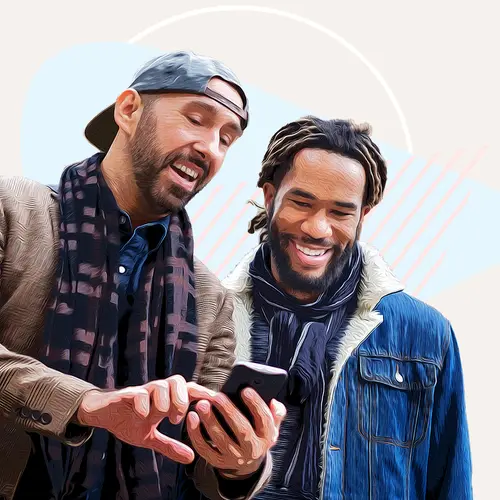If you have HIV or are trying to prevent it, you’ll find lots of mobile phone apps designed to help.
Some remind you to take your preventive PrEP medications. Some explain medications and medical terms, useful for people recently diagnosed with HIV. Others help you navigate everything from doctor appointments to cost savings on drugs.
And there are social apps -- from dating with HIV to support groups. With treatment, HIV-positive people can live as long as those who don’t have the virus. So these might come in handy at many points in your life.
HIV Prevention and Testing
If you take PrEP (pre-exposure prophylaxis) meds, you must take them every day. PrEP is prescribed for people who are HIV-negative but who are at high risk of getting the virus, usually through sex or use of injected drugs.
Many free apps will remind you to take PrEP, HIV, or any other type of medication, including Mango Health,Medisafe, and MyMeds.
A few focus specifically on PrEP. The myPrEP app from Trillium Health reminds you when it's time to take your pill or refill your prescription. You can also add reminders for doctor visits and tests.
HIV Oral PrEP includes guidelines from the World Health Organization (WHO) about the best ways to get and use PrEP. It has information for those taking PrEP and those considering taking it, as well as for doctors, counselors, and pharmacists.
Another WHO app, WHO HTS Info, provides information from the WHO’s HIV Testing Services. It includes the official WHO guidelines on everything from self-testing to notifying partners.
It's not an app you can download, but HIV.gov offers a locator tool that lets you quickly find HIV testing and other services using your mobile phone.
HIV Information
If you’re looking for accurate information on HIV or AIDS, the disease caused by late-stage HIV infection, check out the free AIDSinfo apps. AIDSinfo is a service of the U.S. Department of Health and Human Services. AIDSinfo apps offer content in three categories, for Android and iOS devices:
1. AIDSinfo HIV/AIDS Guidelines gives you the latest recommendations to treat and prevent HIV infections in adults, children, and unborn babies. You’ll also find ways to treat and prevent the "opportunistic infections" that result from weaker immune systems. These are infections that happen more often and are worse in people with HIV.
2. AIDSinfo HIV Drug Database lists more than 160 treatments. These include drugs approved to treat HIV, and some that are still being studied. Each drug entry has two summaries: one for consumers (in English and Spanish) and one for health workers.
3. AIDSinfo HIV/AIDS Glossary gives simple explanations of more than 700 medical and scientific terms. Some are directly related to HIV, like "AIDS-defining condition." Other terms are more general, but you’re likely to hear or see them in a medical context. For example, "TID" is an abbreviation for three times a day, as in "take this drug three times a day."
HIV Treatment and Management
Treating HIV can be tricky. You need to take your antiretroviral medicines as prescribed, without missing a dose. Sometimes, the drugs interact with other medicines you take. And it's important to visit your doctor regularly. These apps may help you manage this process:
- Life4me+ reminds you about appointments and medications. You can stay in touch with your doctor through the app, and save your test results and prescription history. It also brings you news about HIV and other conditions.
- Daily Charge is an everyday support app with educational articles, pill reminders, and a lab results tracker.
- Liverpool HIV iChart provides info on drug interactions for doctors and patients. It uses an easy-to-understand traffic light system (red, yellow, and green) for its recommendations.
You can find the latest WHO guidelines for treatment and care in the WHO HIV Tx app.
The high cost of drugs can be also a source of stress for people with HIV. But you don't always have to settle for the sticker price of your prescription.
Some apps let you search for the lowest prices in your area. They may also offer money-saving tips and information about pharmacy reward programs. These are a few that can help you save:
- GoodRx
- RxSaver
- WellRx
Support and Dating
There’s more to life with HIV than doctor visits and treatments. If you want to connect with others with HIV for support, camaraderie, or even romance, there are apps for that, too. Here are just a few of them.
Support:
- myHIVteam, a social network for anyone living with HIV
- Positive Peers, a social media platform meant for young people with HIV
Dating:
- Positive Singles, a subscription dating app that’s been connecting people with STDs, including HIV, since 2001
- HIV Dating & Herpes Dating, a free dating app for men and women with HIV and herpes
- Hzone, a subscription dating app primarily for same-sex relationships

